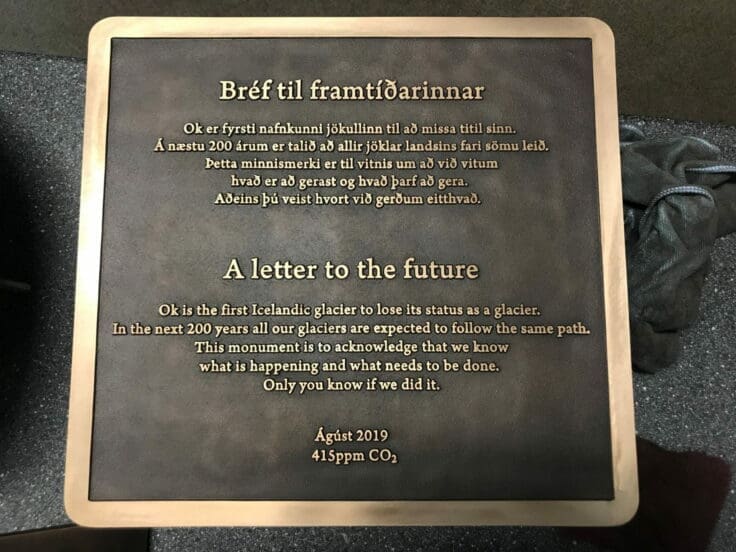Iceland recently marked its first loss of a glacier due to climate change, with scientists warning that more sheets of ice on the island could follow suit.
A ceremony was held on the barren terrain once covered by the Okjokull glacier in western Iceland. According to The Guardian, 100 people walked up the mountain for the ceremony, including Iceland’s Prime Minister Katrin Jakobsdottir, the former UN human rights commissioner Mary Robinson, and local researchers and colleagues from the United States who pioneered the commemoration project.
Today, @CymeneHowe and @DominicBoyer led a hike on #Okmountain in Borgarfjörður, Iceland to install a memorial to #Okjokull, the country's first named glacier lost to climate change. #Okglacier pic.twitter.com/Haek1GM8SA
— Rice University News (@RiceUNews) August 18, 2019
A bronze plaque has was erected in honour of the glacier, acting as a reminder of how much our world is rapidly changing.
Oddur Sigurdsson, the Icelandic geologist who pronounced the glacier extinct almost ten years ago, took a death certificate to the memorial with him.
On August 18, 2019, scientists will be among those who gather for a memorial atop Ok volcano in west-central #Iceland. The deceased being remembered is Okjökull—a once-iconic #glacier that was declared dead in 2014. https://t.co/IbwDha54cB #NASA #Landsat pic.twitter.com/pSFD08UohO
— NASA Earth (@NASAEarth) August 12, 2019
The memorial plaque titled “A letter to the future” translated to English reads:
Ok is the first Icelandic glacier to lose its status as a glacier. In the next 200 years all our glaciers are expected to follow the same path. This monument is to acknowledge that we know what is happening and know what needs to be done. Only you know if we did it.

The plaque also includes the inscription “415 ppm CO2” written by Andri Snaer Magnason, referring to the record level of carbon dioxide in the atmosphere back in May last year.
BBC News notes the glacier was declared dead in 2014 when it was no longer thick enough to move. A stark contrast to when the glacier covered 6.2 square miles in 1890. What was once a massive glacier, “Ok” has been reduced to just a small patch of ice on top of a volcano.
Prime Minister Katrin Jakobsdottir said she hoped that this would alarm the entire world:
I hope this ceremony will be an inspiration not only to us here in Iceland but also for the rest of the world, because what we are seeing here is just one face of the climate crisis…
The race against climate change has most definitely begun, with July this year recorded as the earth’s hottest month ever since temperature records began.
Recent: Greenland lost more than 12 billion tonnes of sea ice in a single day
